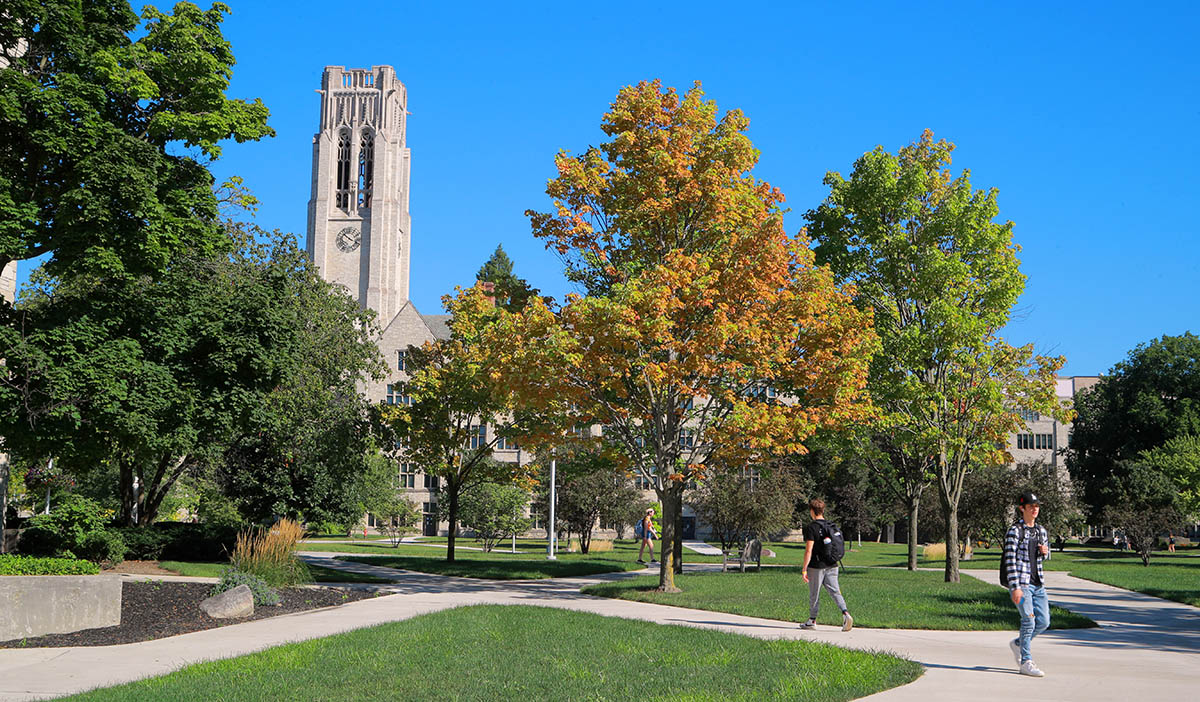Department of Educational Studies
- Faculty and Staff
- Centers for Education in Mass Violence and Suicide
- Center for Nonviolence and Democratic Education
- Herb Innovation Center
- Educational Studies Home
Contact Us
Room 1000
419.530.2461

Department of Educational Studies
Come THINK DEEPLY in the Department of Educational Studies!
The Department's mission is to prepare and develop educational leaders and scholars to be agents of transformation on all levels of educational systems. Our graduate programs are geared towards working professionals: they are student-centered, inquiry-based, and praxis-oriented (integrating theory and practice).
Graduate programs
The Department of Educational Studies offers the following graduate programs (Masters, Ed.D., and Ph.D.).
Educational administration and supervision
The Educational Administration and Supervision program develops effective and dynamic leaders for the field of PreK-12 education—leaders who are collaborative, resourceful, and creative problem solvers. EDAS students prepare for practice by mastering knowledge, practicing skills and developing moral and ethical standards for leadership. The program is designed to develop instructional leaders who can use data for school improvement to enhance student learning. Students have a well-balanced experience in leadership theory and research design as well as in the practical experiences that prepare them for the roles of leadership in America’s schools. Ohio licensure is available with additional coursework beyond the degree program.
M.Ed. (100% online): Master of Education in Administration and Supervision
Certificate (100% online): Principal Licensure Graduate Certificate
Educational Psychology
Educational psychology is devoted to the study of the psychological dimensions of education, teaching, learning, and human development. The program offers a Ph.D. Degree. The Educational Psychology degree incorporates the most recent trends in psychology with implications and applications for education and other social service settings. Graduates of the program find employment in university teaching and research, government agencies, and business.
Ph.D. (100% online): Doctor of Philosophy in Educational Psychology
Foundations of Education
The Foundations of Education program offers both M.A. Degrees and Ph.D. Degrees. Additionally, the program offers an online certificate in peace pedagogy. The strength of the faculty and thus the current organizing focus of these concentrations is social justice. We seek to critically examine the multidimensional nature of justice and education in a way that explores the basic assumptions, policies, and practices of our educational institutions in order to contribute to the creation of a more just, peaceful, and democratic society and world. We believe that at the core of an education for democracy and justice is the capacity for critical reflection. Reflection is a process of examination and analysis that is significantly informed by an understanding of the phenomena that underlie and contextualize educational ideas, practices and problems. We seek to understand education as it is shaped by social, cultural, and ideological forces in order to enhance the reflective practice and thus decision making of educators, leaders, and scholars.
M.Ed.: Master of Education in Educational Theory and Social Foundations
Ph.D.: Doctor of Philosophy in Foundations of Education
Certificate (100% online): Graduate Certificate in Peace and Justice Studies
Higher Education
The Higher Education program at The University of Toledo prepares master's and doctoral students to become leaders who will shape the future of American public and private higher education.
M.Ed. (100% online): Master of Higher Education
Ph.D. (100% online): Doctor of Philosophy in Higher Education
Certificate (100% online): Higher Education Administration Graduate Certificate
Undergraduate Minor
Peace Studies
Peace Studies is an interdisciplinary field of study and learning process designed to develop the capacity of global citizens to critically understand and transform all forms of violence and the patterns of thought that justify and support them in order to contribute to the creation of a more just and peaceful world through processes of peace building. Peace building is based upon transformative change processes that address the underlying root causes of violence and conflict. Violence is the core problematic that the field addresses, and it is broadly defined in terms of the conceptions of direct violence, structural violence, and cultural violence. Global goals of peace building can be, for example, conflict resolution in war zones, improving mothers’ health, decreasing illiteracy, providing education for all, safeguarding sustainability, and celebrating diversity. This understanding provides a powerful complementary perspective to any major field of study.



